OneFootball
Alex Mott·2 December 2020
🕵️♂️ Football League Focus: Portsmouth
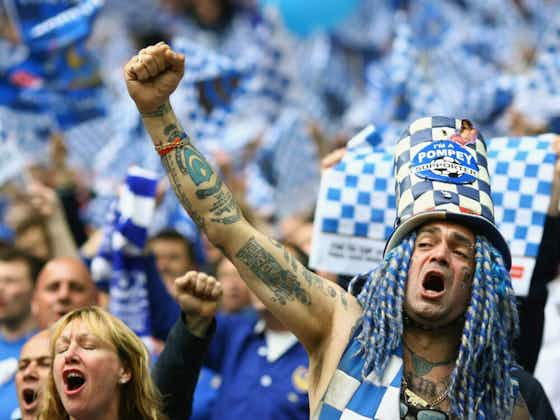
In partnership with
Yahoo sportsOneFootball
Alex Mott·2 December 2020

Welcome to our latest series here at OneFootball where we’re shining a light on one Football League club each week.
It’s our chance to go in-depth on sides that don’t normally attract our attention and hold up a magnifying glass to the plethora of brilliant stories outside the Premier League.
So far we have looked at:
Cardiff City, Derby County, Sunderland, Nottingham Forest, Huddersfield, Stoke, Birmingham, Sheffield Wednesday, Norwich and Bristol City.
This week we’re off to the home of Charles Dickens, Isambard Kingdom Brunel and the HMS Victory: it’s Portsmouth.
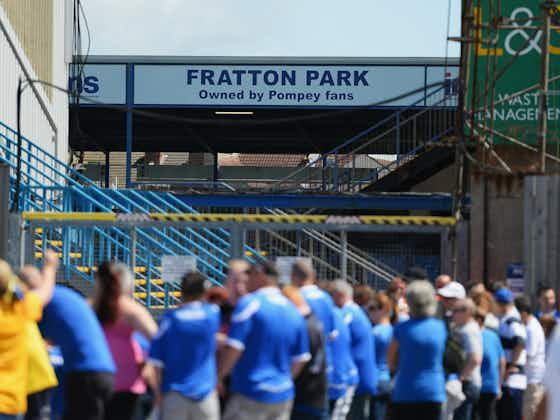
The only English professional club not to play on mainland Great Britain and one of only five teams to have won all four divisions, Portsmouth’s history could never be called boring.
A port city with an astonishing naval past, Pompey can claim to be one of the oldest conurbations in Britain and is widely considered to be the home of the Royal Navy.
Gritty, industrial, not afraid of work – words that could describe the football team as well as the place itself, Portsmouth have been one of the most storied and successful clubs in English football. And, at times, one of the worst.
They’ve gone from champions of England to languishing at the bottom of the fourth tier, have tasted FA Cup glory and stayed at the brilliant Fratton Park for their entire existence.
Their past though has been as stormy as the Solent that surrounds them.
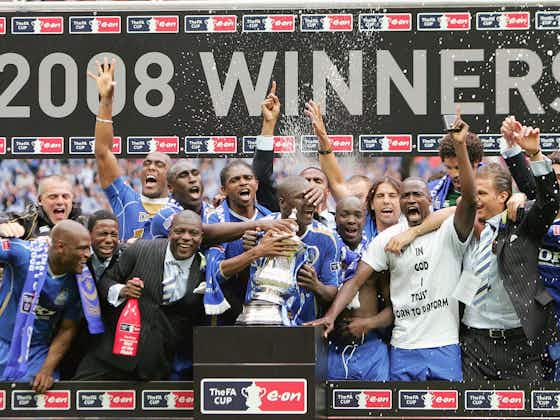
The club was founded in 1898 and boasted in his first squad Sherlock Holmes creator, Sir Arthur Conan Doyle – a handy goalkeeper by all accounts – and hotshot goalscorer Regimental Sergeant-Major Frederick Windrum.
Things couldn’t have got off to a better start. Wednesday, September 6 saw Pompey host local rivals Southampton in their first ever game, with 7,000 spectators watching a 2-0 victory at Fratton Park.
Introduction to the Football League came in 1920 but it was seven years later that success truly arrived with promotion from the Second Division was confirmed on the final day of the season.
Having confirmed themselves as First Division regulars, it was FA Cup success that they craved on the south coast. That would come in 1939 as Wolves were defeated in what would go on to be known as the Gland Final.

The Midlands side were trounced 4-1 but the game has since been overshadowed by confirmation that both squads were injected with monkey glands prior to kick off to boost testosterone.
With the outbreak of the second world war, all professional football in England was paused for six years, meaning Pompey still have the distinction of being Cup holders for longest time.
The city was razed to the ground during Nazi Germany’s Blitzkrieg, with Portsmouth suffering 930 deaths and untold damage to its harbour.
Miraculously though, Fratton Park survived and going into the 1950s would host Portsmouth’s Golden Age.
The 1948/49 season saw the club crowned champions for the first time, winning the First Division by five points from Manchester United.
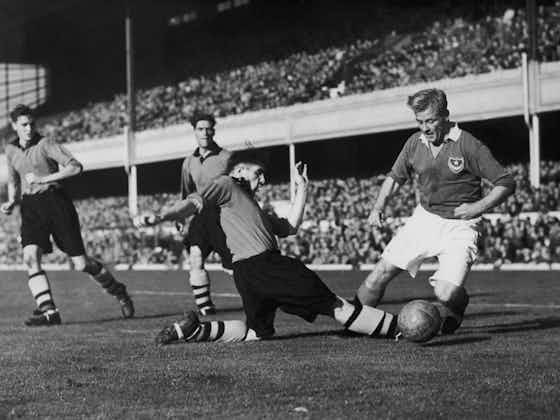
And it would get even better for Pompey, as the next season they would do it again becoming one of only five clubs to win back-to-back top flight titles.
The 1949/50 season would go down as one of the closest in history, with Pompey beating Wolves to the title on the final day by just 0.4 on goal average.
A third place finish in 1955 would be as close as Pompey would again come to the top title and as Britain turned from post-war haze into the Swinging Sixties, their 32-year stay in the top flight was over.
The good times were now in the distant past and it wasn’t until almost 30 years later, in 86/87, that World Cup winner Alan Ball got Pompey back into the First Division.

That was short-lived but Pompey were now a secure Second Division side and almost made it into the very first Premier League season, only to miss out on promotion in the play-offs.
It was Harry Redknapp’s arrival in 2002 that sparked a revival however and in his first season achieved promotion with Pompey playing some of the best football ever seen on the south coast.
Paul Merson, Robert Prosinecki and Svetoslav Todorov were the heroes as they won the old First Division with 98 points, scoring 97 goals along the way.
With new investment came a raft of top-quality players. Over the next few years the likes of Yakubu, Sol Campbell, Jermaine Defoe and Nwanko Kanu would all join the club and it was the latter of those who produce Pompey’s finest modern day moment.
Cardiff were the opponents in the 2008 FA Cup final, with Kanu’s close range finish seeing them win 1-0 and lift the trophy for only the second time.
Over 100,000 people welcomed Redknapp and his squad back to the city for the trophy parade but unfortunately that would be the last time such high-profile success would bless the club.
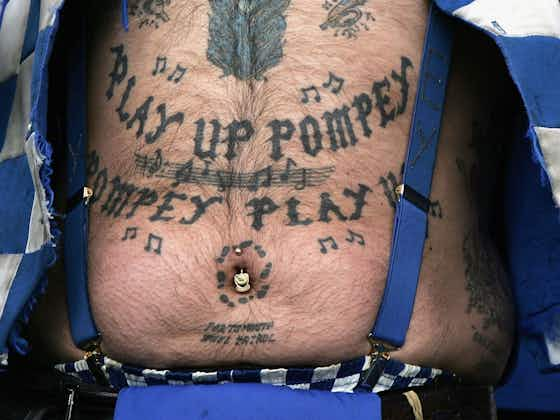
After a steady climb up the divisions and a growing sense that they were becoming one of the country’s best sides, 1929’s FA Cup final defeat to Bolton Wanderers was a hammer blow.
Despite beating Chelsea, West Ham and Aston Villa on their way to Wembley two late second half goals ensured that the famous trophy went back to Lancashire.
And it would be a similar story five years later as a 90th minute winner from Fred Tilson saw Manchester City beat Pompey 2-1 in the 1934 FA Cup final.
Controversy surrounded the goal as Tilson looked to have committed a foul in the build-up but referee – and future FIFA president – Stanley Rous waved away protests and broke Portsmouth hearts.
Pompey would eventually win the Cup and subsequently go on to become back-to-back First Division champions but their fall was as dramatic as the rise.
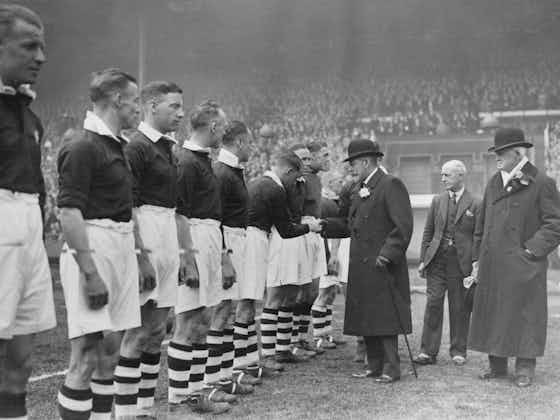
Just 10 years after they had reigned over English football, Portsmouth were relegated to the Second Division and just two years after that, they were in the Third Division for the first time.
Manager after manager was replaced – with two having to leave due to ill-health º– and by the end of the 1970s, under former Liverpool star Ian St John, Pompey were, for the first time in their history, relegated to the Fourth Division.
They were the first FA Cup winners to ever reach such depths and it wouldn’t be for another four years before Frank Burrows got them back into the third tier.
They remaineed a pretty sold Second Division outfit into the 1980s and 90s but once again, after the boom came a dramatic bust.
The return to the Premier League and the 2008 FA Cup triumph was very quickly followed by a second final – this time they would lost to Chelsea – and after that a slide down the English football pyramid.

Good money was chased after bad, as signing after signing joined for crazy wages and then failed to deliver on the pitch. John Utaka was famously earning £90,000-per-week despite scoring just five goals in three seasons.
And by 201o, Portsmouth’s annual wage bill was the fifth-highest in the Premier League despite finishing rock bottom.
HMRC were called in and a winding up order was issued as wages remained unpaid and the club were relegated first to the Championship, then League One, and by 2013 had sunk to League Two.
Not even five years after winning the FA Cup, Pompey were in the same division as Morecambe, Scunthorpe and Torquay.
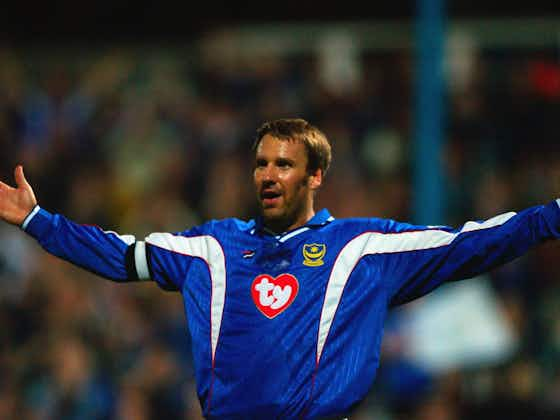
Jimmy Dickinson was a one-club man who played 828 for Pompey and was the inaugural inductee of their Hall of Fame.
Peter Harris is still their leading scorer with 211 and was instrumental in Pompey’s back-to-back title wins.
Paul Merson was only at the club for a single season but almost single-handedly guided Pompey back to the top flight in 2002/03.
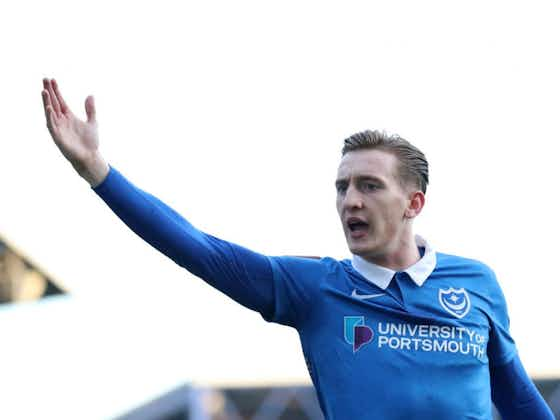
John Marquis has been the standout striker in League One this season, netting 11 goals in 20 appearances so far and receiving admiring glances from clubs up and down the country.
But a lot of his success is down to the brilliance of Pompey’s two wide men – Marcus Harness and Ronan Curtis are two 24-year-olds who are going places, and fast.
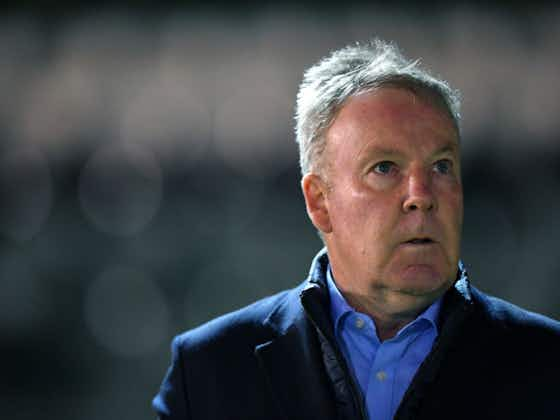
Kenny Jackett is a Football League stalwart with Portsmouth being his seventh club in just over two decades of management. Fratton Park has been a volatile place for a coach in recent years but Jackett has presided over this side for three years now and look as good as ever for a promotion berth.
It was a difficult start to the campaign but after faltering in the early weeks, Portsmouth are now one of the most consistent in the division. Play-off heartache last season against Oxford looks to have been a catalyst for change and the south coast side now look one of the best bets for promotion come May.






























































